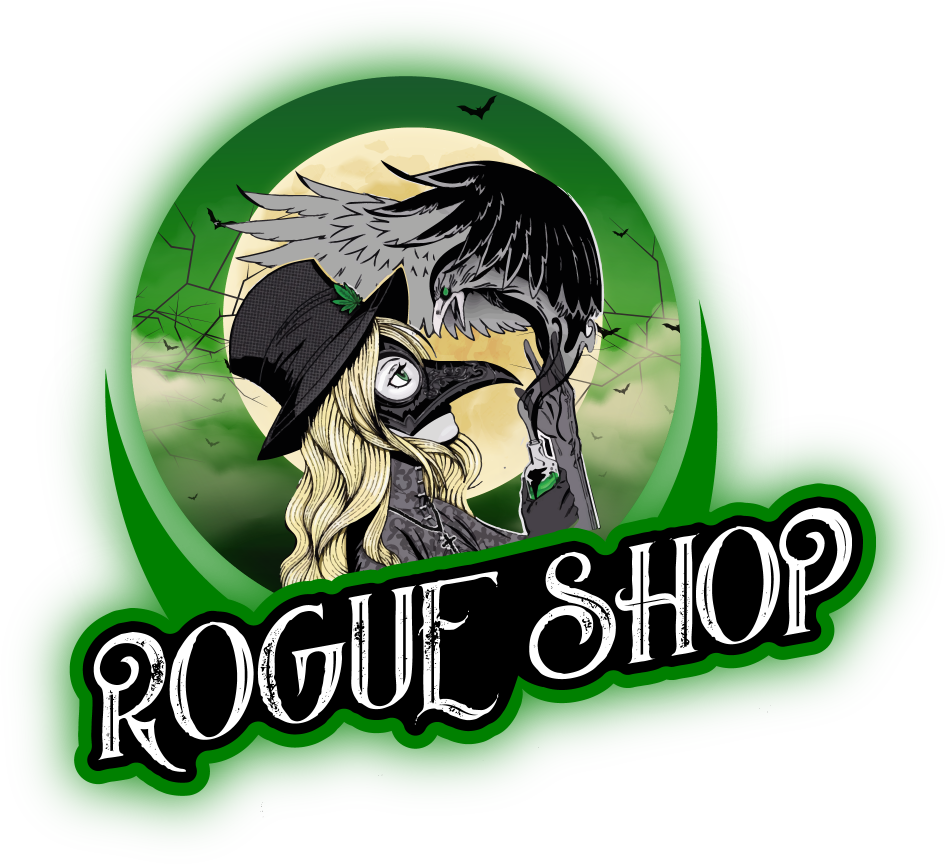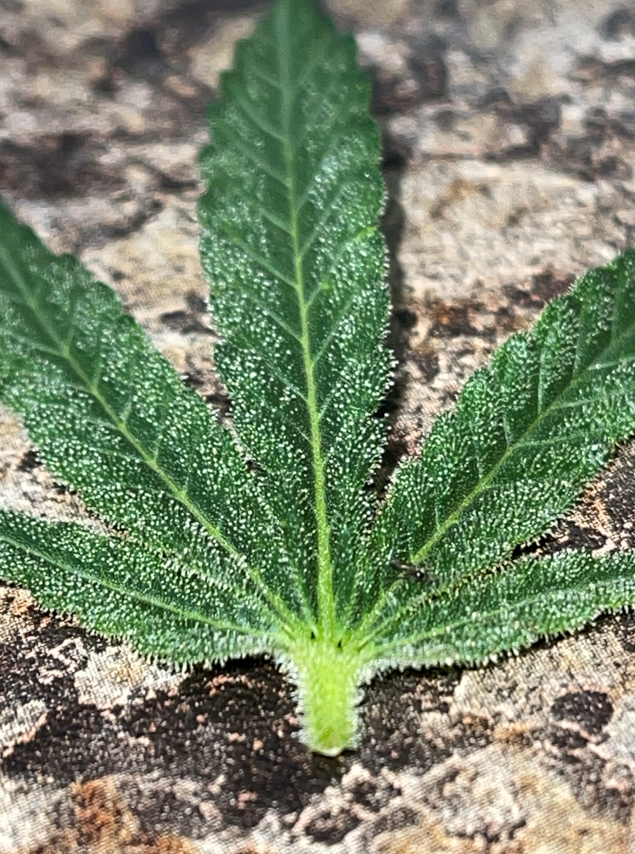Cannabidiol (CBD) is the cannabinoid that started the hemp craze, thanks to its absolutely staggering number of benefits that apply to countless people across the world. This unique hemp-derived compound continues to dominate the wellness market, for one simple reason: the large majority of people find that it works.
It has been available on the market for a good decade now, but there’s still a lot about the compound that the average person doesn’t know. So, what exactly is this compound, and why is it so unique to the plant world?
The Origin and History of CBD
Cannabidiol was first discovered in a laboratory in 1940 by a Harvard-trained chemist with in interest in analyzing the hemp plant. It wasn’t until further analysis was performed in 1963 that we finally developed a good understanding of the compound’s chemical structure. Leading up to that point, however, isolated CBD extracts began to be used in clinical trials.
CBD makes up, on average, 10%-20% of the hemp plant’s chemical composition. It’s the most dominant compound in hemp, which has a lot to do with its popularity, aside from its unique properties that apply to the human body.
Is CBD Psychoactive?
CBD possesses zero psychoactive activity. In other words, it’s impossible to get high off of cannabidiol. It does not interact with the cannabinoid receptors in the brain responsible for the psychoactive response associated with other cannabinoids like delta 8 THC and delta 9 THC.
Keep in mind that products labeled as “CBD” often contain the complete array of chemical compounds in the hemp plant, but these products are still non-psychoactive. How? Because the hemp plant contains too little tetrahydrocannabinol (THC) to cause psychoactive effects, even in large doses.
Can CBD Cause a Failed Drug Test?
CBD cannot result in a failed drug test. Standard urine tests administered by employers aren’t seeking out cannabidiol at all. They are seeking out THC-COOH, an enzyme that breaks down THC in the body. It does not yield the release of THC-COOH, and so consuming the cannabinoid will have no effect on a drug test.
What are the Effects and Properties of CBD?
Besides delta 9 THC, CBD is the most researched cannabinoid in cannabis. This isn’t just because of the cannabinoid’s incredibly diverse array of properties, but also because its high prominence in the plant makes it easier to extract and analyze than other cannabinoids.
Like all cannabinoids, it works with the body’s endocannabinoid system (ECS), which keeps the body in homeostasis by sending cannabinoids to individual cannabinoid receptors. Once cannabinoids attach to these receptors, specific bodily processes are regulated to contribute to the body’s state of equilibrium.
Cannabidiol attaches to both classes of cannabinoid receptors:
- CB1 receptors (in the nervous system)
- CB2 receptors (in the immune and digestive systems)
This means that its effects are particularly extensive and widespread throughout the body.
Decades of research has gone into analyzing the potential therapeutic benefits of cannabidiol. The most well-established benefits have been reported around the globe, ranging from news outlets to online sources, and even from CBD users themselves.
Potential Benefit #1: Anxiety/Stress Relief
CBD attaches to CB1 receptors that balance the brain’s neurotransmitters, and this is why the cannabinoid is commonly referenced for its calming effect which can be helpful to those with anxiety and stress. Cannabidiol might be able to balance cortisol secretion to make the brain more resilient to stress and anxiety.
Potential Benefit #2: Help with Sleep
The same study referenced above shows that the effect that CBD may have on neurotransmitter balance can allow it to offer sleep-enhancing benefits. It may help serotonin, cortisol, and melatonin levels adjust in a way that allows sleep to come more easily.
Potential Benefit #3: Pain Relief
Numerous findings have uncovered that CBD can offer pain relief through two individual mechanisms.
- Mechanism #1: Can act as an analgesic, regulating the way in which the nervous system sends pain signals to the brain.
- Mechanism #2: Reducing inflammation in the tissue of the body.
Potential Benefit #4: Relief from Nausea and Low Appetite
Cannabidiol’s anti-nausea properties and appetite-enhancing effects make this cannabinoid very useful for those people out there who struggle to eat enough daily. In fact, it may make the act of eating food more gratifying to the brain.
Potential Benefit #5: Neuroprotective Properties
One of the first properties that scientists discovered about CBD is that it acts as a neuroprotectant, which can be profoundly useful in treating both epilepsy and symptoms associated with dementia. Neuroprotectants strengthen neurons and neural pathways to keep the neurological system as functional as possible.
Potential Benefit #6: Immune Regulation
Essentially, CBD seems to work directly on CB2 receptors in the immune system, to regulate overall immune response in a way that keeps the immune system more functional.
Potential Benefit #7: Relief from Digestive Inflammation
There is a lot of promising evidence that CBD can regulate inflammation in the digestive tract, which could be helpful to those suffering from common inflammatory conditions like Irritable Bowel Syndrome (IBS), Crohn’s disease, and colitis. All of these conditions involve digestive inflammation and are linked to autoimmunity.
Is CBD Legal?
CBD is a completely legal derivative of the hemp plant. In 2018, the United States passed the Farm Bill which made the hemp plant federally legal, along with all of its derivatives. The one stipulation is that no hemp product can contain more than 0.3% delta 9 THC.
State lawmakers can make their own hemp-related laws and have the right to ban it if they so choose. But, as it stands, all 50 states allow residents to legally buy, possess and consume CBD-based products containing a maximum of 0.3% delta 9 THC.
Is CBD Safe?
CBD is considered to be a safe cannabinoid, as it’s nontoxic to the body and not associated with either major side effects or major withdrawal symptoms. It can be tolerated in relatively high doses over a long period of time.
However, if you are on certain medications, you need to speak with your doctor before taking cannabidiol. Why? Because CBD may suppress the CYP3A4 enzyme that’s responsible for breaking down many common drugs including steroids, antidepressants and opioids, among others. This could cause medications to fail to properly metabolize, thus causing them to accumulate in the blood in potentially dangerous levels.
CBD does not seem to cause any major side effects, but in rare cases, particularly high doses may lead to:
- Dizziness
- Grogginess
- Sleepiness
- Temporarily Reduced Blood Pressure
- Headache
- Dry Mouth
- Dry Eyes
What Kinds of CBD Products are There?
Cannabidiol exists in a huge array of product formulations, which each allow the effects of the cannabinoid to be felt in a unique way. Knowing each product type, also known as the ‘delivery method’, can allow you to select a CBD-infused product that meets you needs.
- CBD Vapes: These can come in the forms of vape cartridges, vape oils, and even disposable devices. Each allows us to inhale a CBD-rich vapor, which allows for fast-acting, potent and short-lived effects. These product types tend to come in a wide variety of unique hemp strains so that the user can enjoy the effects of different terpene profiles as well.
- CBD Tinctures (CBD Oils): Mainly used for sublingual administration. They come in dropper bottles consisting of pure hemp extract and a carrier oil, and sometimes flavoring as well. Available in a wide variety of milligram strengths.
- CBD Edibles: Extremely popular since they taste delicious and offer up to 8 hours of effects in the body. The effects are a bit more subdued than other delivery methods, but effective just the same. Gummies are the most popular, but you can also find CBD chocolate, CBD beverages, and more.
- CBD Capsules: Technically, these are also edibles since they’re processed by the body in the same manner. However, capsules (soft gel or hard caps) contain fewer ingredients, and obviously come in capsulated form.
- CBD Flower: This simply raw hemp flower, which naturally contains a high level of cannabidiol along with every naturally occurring cannabinoid that exists in the hemp plant. You can find it in wide array of strain options in both loose buds or pre-rolls.
- CBD Dabs: Also know as “concentrates” of the hemp plant which are naturally extremely potent. They are “dabbed” or flash-vaporized using a special type of device made for concentrates.
- CBD Topicals: Meant for applying to the skin, where they absorb through the skin to offer localized effects to the joints and muscles. Great for targeting painful areas, but you can also find CBD skincare products that offer beneficial properties (cosmetic for instance) to the skin.
- CBD Pet Products: Like us, pets have an ECS. However, pet-based cannabidiol is different. It’s not as strong as it would be for humans and doesn’t usually have THC. These can come in the forms of tinctures, treats, and even topical solutions.
Can CBD Be Taken with Other Cannabinoids?
Yes, because all cannabinoids can be taken with one another. Basically, there is no risk of a negative interaction since they are all derived from the same source material. Cannabidiol actually works synergistically with other cannabinoids to maximize the benefits of each and taking CBD in combination with others is common. For instance, many people take CBD with delta 8 THC in order to enjoy a more relaxed experience or take CBD with CBG as it may boost the latter’s anti-inflammatory properties.
Overall, there is no reason to avoid taking more than one cannabinoid as part of your daily routine, so feel free to try other cannabinoids even if you’re already taking CBD once a day.
Note: If you decide to take more than one cannabinoid, it is best to still speak with your doctor first.
What is the Ideal CBD Dosage for Beginners?
CBD is non-psychoactive, so you can explore higher strengths as a beginner without worrying about getting too high and experiencing potential feelings of anxiety or paranoia. Most beginners start with somewhere between 25-40mg in the form of a capsule, tincture or edible, or 1-3 puffs from an inhalable product like a vape cartridge or CBD flower. CBD can be tolerated at high doses, so as you begin to incorporate CBD into your regimen, you can gradually increase the dosage amount if you feel that this will suit you.
Rogue Shop Has Your CBD Needs Covered!
As you can see, CBD is the superstar of the hemp plant, and one of the most popular hemp derivatives throughout the world for a reason. At Rogue Shop, you can find a vast array of top-quality cannabidiol products in all kinds of exciting product forms that can be added to your daily routine. With so many valuable properties found within this cannabinoid, just about everyone can benefit from a daily dose of CBD. So, just look through our products today to find one that appeals to you. In fact, we carry strictly lab-tested, premium-grade cannabidiol to ensure that everyone out there enjoys only the finest quality hemp possible.


